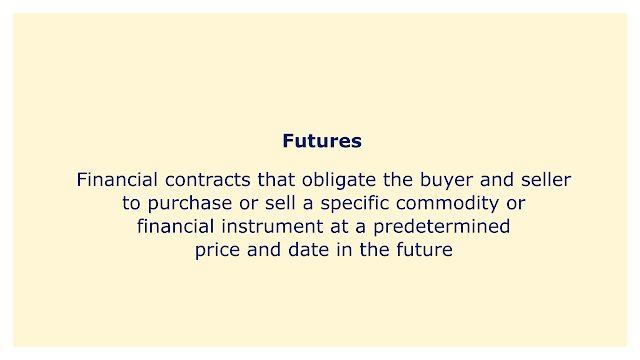 |
| Image: Moneybestpal.com |
Financial contracts known as futures, in the context of finance, bind the buyer and seller to buy or sell a specified commodity or financial instrument at a set price and date in the future. Standardized exchanges like the Chicago Mercantile Exchange or the Intercontinental Exchange are where these contracts are transacted.
Investors and traders use futures for a range of things, such as hedging against changes in the price of commodities like agricultural goods or energy resources as well as taking speculative positions in financial markets like stocks, bonds, and currencies. In a variety of industries, including manufacturing and agriculture, futures can be utilized to facilitate price discovery and risk management.
The quantity, quality, delivery date, and price at which the underlying asset will be purchased or sold are all standardized elements that are included in futures contracts. Since these contracts are marked-to-market every day, changes in the market price of the underlying asset are taken into account for determining the contract's value.
Futures can be used by traders and investors as a hedge against price fluctuations or as a means of market direction speculation. To lock in a price for the corn they will produce in the future, for instance, a corn producer can sell corn futures contracts, whereas a trader might buy corn futures contracts if they anticipate an increase in corn prices in the future.
